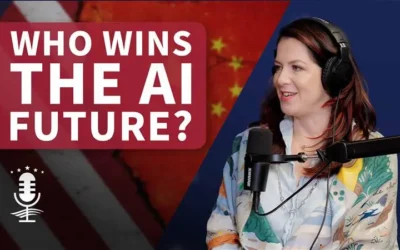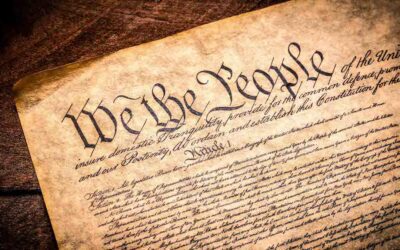Written by
- Political bosses like Boss Tweed and James Michael Curley built power by tying immigrant communities to political machines, trading services for votes.
- Immigration and elections became deeply intertwined in American politics, even when immigrant populations declined, as in Richard Daley’s Chicago.
- Today’s debates about immigration and voter fraud echo a 19th-century political narrative, despite little evidence of widespread immigrant-driven fraud.

In the aftermath of the U.S. Civil War, urban centers like New York, Boston, and Philadelphia were in chaos: streets filled with garbage, crime rates through the roof, and public services nonexistent.
This bleak period in the story of American cities spawned one of the most complex political mechanisms in U.S. history – the political boss – with dramatic implications for American elections that echo today. Political machines like New York’s Tammany Hall, which dominated the Democratic Party in the city, existed before the appearance of political bosses and were already controlling the politics of many urban centers. Political bosses emerged from these machines as populist figureheads who represented the might of the machine.
Political bosses have long been associated with immigrant communities in America’s collective consciousness, stemming from early bosses like Boss Tweed and James Michael Curley who built their political power on a voter base of urban immigrant populations. Boss Tweed, for instance, famously offered jobs, housing, food, and healthcare to immigrant communities across New York City in exchange for political loyalty to himself (i.e., votes). Similarly, James Michael Curley championed the Irish immigrant population in Boston, using public resources and political influence to expand their opportunities in return for votes and support.
One of Tweed’s earliest political maneuvers came during the draft riots of 1863.
This was a period of unrest sparked by the unequal application of the Civil War draft. Wealthy New Yorkers paid for substitutes to avoid military service, while many Irish immigrants (unable to pay for a substitute) were conscripted in disproportionately high numbers.
Tweed brokered a compromise that helped defuse the crisis: Some Irishmen were granted exemptions or received loans from Tammany Hall to hire substitutes. This solution quelled the riots and earned Tweed goodwill from both the immigrant community and the city’s elite. However, his relationship with immigrants was not entirely benevolent. Tweed also exploited the immigration system, using falsified records to cast fraudulent votes for himself and other Tammany Hall candidates.
Curley’s political career spanned over 50 years and included multiple terms as Mayor of Boston and Governor of the state of Massachusetts. Curley achieved such longevity by maintaining a voter base in the Irish immigrant communities of Boston.
Massachusetts had seen political machines and successful Irish American politicians before Curley, but he was the first to radically politicize immigration and ethnic tensions to support his political career. Curley was overtly antagonistic to the “Yankee” community of Boston and exploited ethnic tensions in the city to drive factionalism. He even worked to increase immigration from Ireland to Massachusetts to ensure that his voter base remained large enough to maintain a majority.
Over time, immigration became so closely associated with elections that even in cities with declining immigrant populations, political bosses were still widely perceived as being backed by immigrant communities. One of the clearest examples is Richard Daley of Chicago.
Though Daley rose to power in the 1950s, when Chicago’s immigration rate was at one of its lowest points in history, media coverage and historical accounts frequently linked him to immigrant neighborhoods. In reality, Daley’s political support came from predominantly white working-class voters. Yet the politicization of immigration was so entrenched that his identity as a Democratic political boss remained tied to immigrant narratives, even as actual immigration rates dwindled in his city.
We continue to live with the politicized narrative that immigration is a means for one political party to secure electoral victory, either by growing a voter base or through perceived immigrant-driven vote fraud. There is a distinct lack of credible evidence that immigrant-driven voter fraud is happening on a notable scale, even using data from the most fraud-focused organizations. Yet, lawmakers continue to draw headlines proposing legislation based on the opposite narrative.
Just as it was in the 19th century, the issues of elections and immigration are far more nuanced than partisan talking points suggest. Political bosses like Tweed and Curley helped set a political precedent that has long outlived its factual expiration date. The goal of producing sound election policy – protecting both election integrity and reasonable exercise of the right to vote – would be better served if we chose to reach higher than dated electoral politics and focus instead on actual barriers to secure and convenient voting.

Insights: analysis, research, and informed commentary from Sutherland experts. For elected officials and public policy professionals.

- Political bosses like Boss Tweed and James Michael Curley built power by tying immigrant communities to political machines, trading services for votes.
- Immigration and elections became deeply intertwined in American politics, even when immigrant populations declined, as in Richard Daley’s Chicago.
- Today’s debates about immigration and voter fraud echo a 19th-century political narrative, despite little evidence of widespread immigrant-driven fraud.
Read More
Republic vs. regime: Who wins the AI arms race? | Sarah Hunt
How is AI reshaping the world’s superpowers? We explore how energy and culture could determine the battle for dominance.
Believe in the Constitution, not political power
The Constitution grants states and Congress, not the president, authority over election laws. An executive order to ban mail-in voting would be constitutionally weak and unlikely to survive judicial review.
Teach the republic: Why every civics crisis traces back to teacher preparation
Through teacher training programs that deepen constitutional understanding, we can strengthen classrooms, communities, and our republic.
Connect with Sutherland Institute
Join Our Donor Network
Follow Us
The post Political machines, party bosses, and immigration appeared first on Sutherland Institute.












